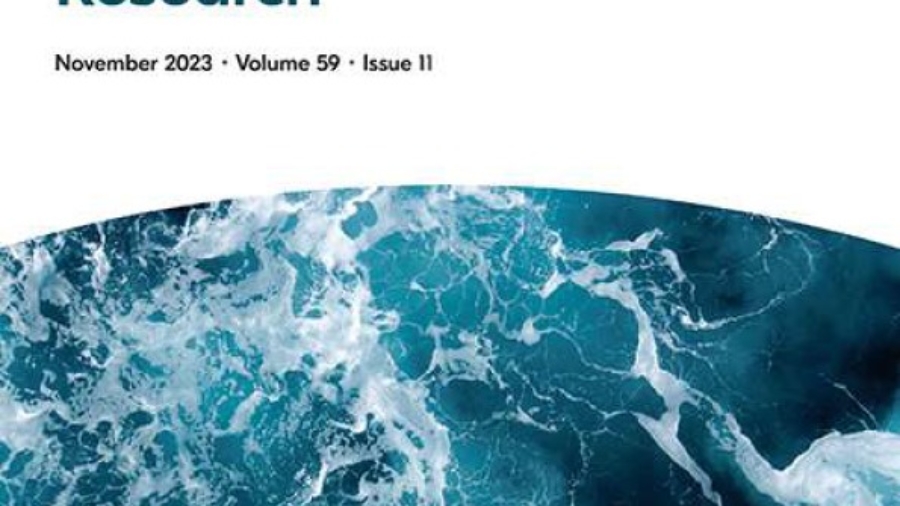The Journal of Applied Water Engineering and Research (JAWER) is a peer-reviewed journal launched in 2013. It focuses on publishing papers and practical case studies on different aspects of hydro-environment engineering and research. Practically oriented papers and case studies get optimum attention in the journal. Papers cover fluid systems in the hydrosphere, including rivers, lakes, coastal waters, and groundwater, within an engineering context. It also includes hydraulic machinery, hydraulic structures, water supply, treatment, and drainage systems.
The journal shows strong interest in environmental monitoring, catchment hydraulics, water quality, and eco-hydraulics and their role in climate change studies, reuse and water security, flood risk management, and desalination. The journal welcomes applications related to integrated water resources management and hydropolitics. The aim is the international dissemination of innovative methods that specifically showcase studies on interfacing technology-based solutions within the hydro environment.
JAWER welcomes technical-oriented papers that provide directly applicable solutions to water engineering problems and practical insights and case studies. Authors must consider:
- Authors must provide direct, practical solutions in their research.
- The aim must be the international dissemination of innovative methods to a broader audience than just locals.
- Interface technology-based solutions within the hydroenvironment and its values and services within an engineering context.
- Being methodologically sound.
- A manuscript shouldn’t be a usual report of a physical or numerical model study; rather, it should focus on specific advances in technological applications, not necessarily be new or original.
- There should be a section on application or case study in the article.
Water Research Journal
The Journal of Applied Water Engineering and Research is a peer-reviewed scientific journal that covers research on the science and technology of water quality and its management. It was established in 1967. Elsevier publishes it on behalf of the International Water Association. Eberhard Morgenroth (Swiss Federal Institute of Aquatic Science and Technology) is the current editor-in-chief of the journal.
Although the review process of the journal is pretty slow, the chances of publication are high. Based on the Journal Acceptance Rate Feedback System database, the acceptable rate of water research is 85.3%. The acceptance rate for an academic journal depends on the relative demand. The time of publication, unsolicited submissions, the mix of invitations, and the peer review process are part of the acceptance or rejection of the submitted article.
Water Resources Research Journal
The Water Resources Research Journal is a peer-reviewed scientific journal. It is published by the American Geophysical Union. The journal covers research in the social and natural sciences of water. Georgia Destouni (Stockholm University) is the current editor-in-chief of the journal; she took over from Martyn Clark (2017–2020). It was established in 1965. Walter B. Langbein and Allen V. Kneese were the founding editors. The Water Resources Research Journal comes every month.
The ISSN of the journal for print is 0043-1397 and 1944-7973 for web. Hydrology and water resources are the disciplines of the journal.
Water Resources Research (WRR) is an interdisciplinary journal that focuses on publishing original research in the natural and social sciences of water. The emphasis is specifically on the role of water in the Earth system. It emphasizes physical, chemical, biological, and ecological processes in water resources research and management. Social, policy and public health implications are also part of their policies. It includes approaches that advance the science of water and its management. These approaches are observational, experimental, theoretical, analytical, numerical, and data-driven.
Novelty, accuracy, significance, and broader implications of the findings are the criteria for submissions.
Water Research Journal Impact Factor
According to the 2021 Journal Impact Factor, 13.400 is the impact factor of the Water Research Journal.
The journal was abstracted and indexed by:
- Chemical Abstracts Service
- Current Contents/Agriculture, Biology, and Environmental Sciences
- EBSCO databases
- Food Science and Technology Abstracts
- GEOBASE
- Index Medicus/MEDLINE/PubMed
- Science Citation Index Expanded
According to the journal citation reports, the impact factor of the journal will be 6.159 in 2023. Previously, the IF number was 5.240 in the 2020 report.
Water Environment Research Journal
Water Environment Research (WER) is a multidisciplinary water resource management journal established in 1928. The aim of the journal is the dissemination of fundamental and applied research in all scientific and technical areas contextualizing water quality and resource recovery.
WER’s goal is to foster communication between sciences and fields related to it; environmental toxicology, agriculture, public and occupational health, microbiology, and ecology are water-related fields. Apart from original papers, WER also encourages original research articles, short communications, case studies, and reviews.
WER has almost a hundred years of title history and lists the dates published.
- 1928-1949: Sewage Works Journal
- 1950–1959: Sewage and Industrial Wastes
- 1960–1989: Journal (Water Pollution Control Federation)
- 1989–1991: Research Journal of the Water Pollution Control Federation
- 1992-2017: Water Environment Research


Add a Comment